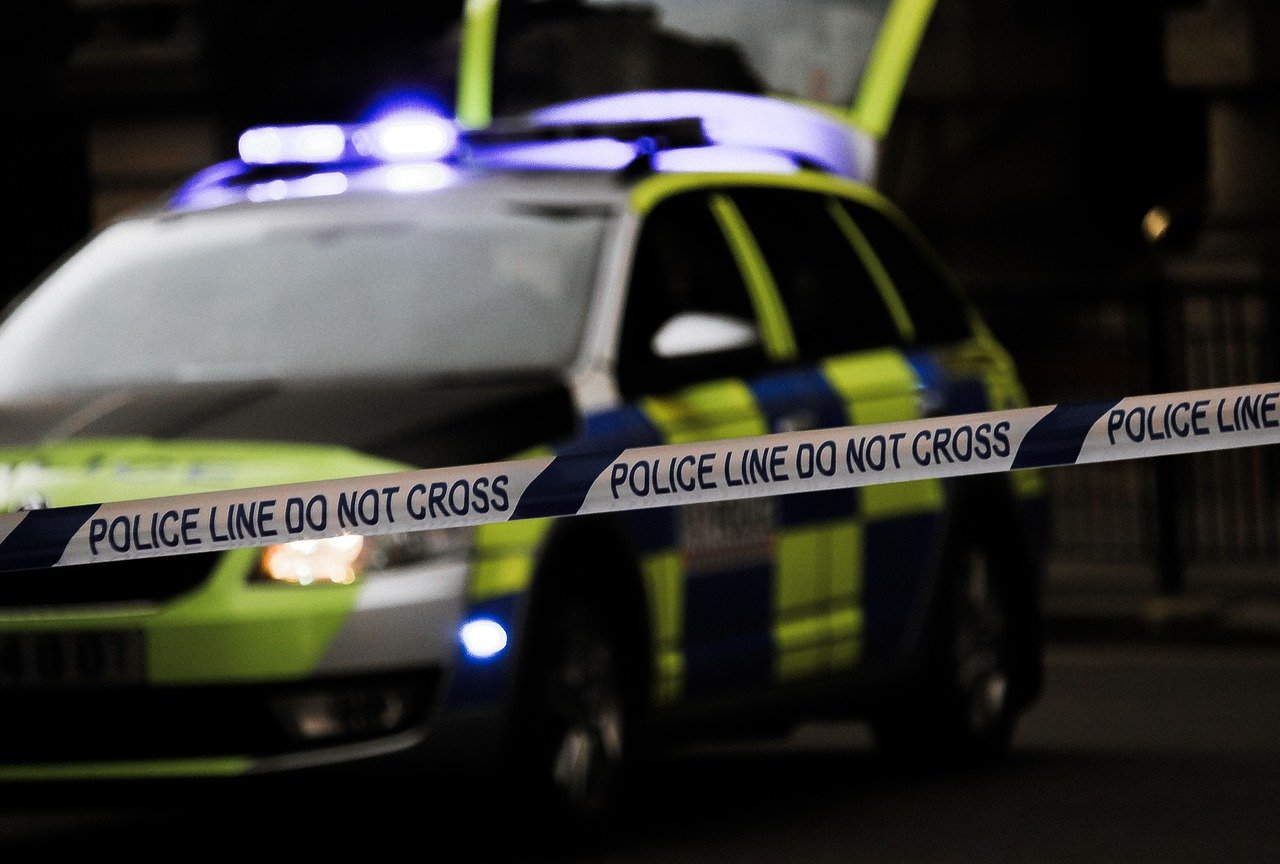Suspending Disbelief
Writing crime fiction is a balancing act. We have to keep the reader gripped with fast-moving, gripping action keeping within a framework of believable police procedure. A large proportion of police work is dull in real life. For instance, we rarely see on TV the hours of ‘paperwork’ that need to be done after attending some jobs. For example, a domestic dispute, an assault on a vulnerable person, and hate-based crimes require the police to record important information. That can take several hours in front of a computer. Actions need to be justified, referrals made to other agencies, and so on. When I say paperwork, a lot of writing is actually on computer-based forms.
That’s Entertainment
In fictional crime stories, to make things more interesting, procedures are accelerated, short-cuts are taken, and more drama is added. If we don’t do that, then no one will watch it. So, that’s understandable–it’s entertainment, after all.
It’s all about how far we are prepared to suspend our disbelief for the sake of drama. Some struggle harder to accept it than others, but the writers of such fiction are only trying to tell a story.
Here are a few random things you may not know are police procedure errors in fiction. I’m not saying any novels that include these are poorly written, and I’m guilty of at least one of these in my books. So, let’s not forget the primary purpose of fiction is to entertain.
Police Interviews
Police officers standing by the door, staring at the opposite wall

I’ve never once had to stand in an interview room, guarding an entrance. I can’t think of any circumstances where that would happen. Also, Police officers have far too much work in their caseloads just to stand there and do nothing. There’s a shortage of police officers, so why waste a valuable resource?
Shouting at the suspect
There’s the classic scene in the story during an interview when the detective dramatically thumps the table and demands that the suspect tells the truth. That’s a big no-no. There are stringent codes of practice outlined in the Police and Criminal Evidence Act 1984 (PACE) that police have to stick to when someone is in custody and being interviewed.
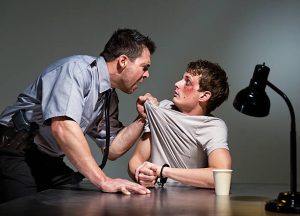
You can’t harass the person you are interviewing—the Defence Barrister will have a field day in court. Interviews are always recorded, and an interview of a suspect in serious cases would be videoed. You must remain calm, methodical, and prepared in advance when questioning someone. The investigating officer/staff must go through the points to prove as laid out in the offence.
Always a DCI or DI interviewing a murder suspect
DCIs, especially, are unlikely to have the time to interview suspects. It can often be a DC or DS taking the interview. For the sake of avoiding tedium, most novels (including mine) make the murder suspect interviews last an hour or more. In reality, some complex interviews can take much longer.
Crime Scenes
Walking all over the crime scene
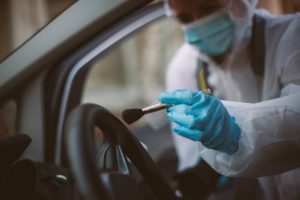
One particular TV crime drama is frequently guilty of this—I don’t want to say it by name, but it involves a made-up county; move there at your peril! You see police officers walking around in flat caps (often in NATO jumpers), traversing the crime scene in their big boots, carrying clipboards. The pathologist, who has made incredibly rapid conclusions about the murder victim, wears a white or blue coverall (scene suit), mask, gloves, and shoe covers. However, the detectives are happily applying their size-nines all over the floor, contaminating everything with their shoe prints, DNA, fingerprints, etc. Murder crime scenes are carefully considered, and it is crucial to follow police procedures to maintain the integrity of a crime scene. There can be an inner cordon and an outer cordon, and those areas marked off by tape can be large. There can be multiple crime scenes for one offence. A scene guard (a police officer or PCSO) will ask everyone entering and leaving the crime scene to give their names. You can’t have people wandering around willy-nilly.
Results back the same day
Results from evidence gathered at a crime scene can take several days to come back—not the next day. I can understand why books and TV programmes do it—it’s no fun waiting. It is expensive to rush through testing, and more often than not, there isn’t a budget for it. The Forensics Lab has many other jobs to do as well.
Look, it’s a police car—turn on those blues
Lastly, in this section—a pet hate for me—is police cars left with their blue strobe lights on outside the murder location. Fair enough if they are on a road closure with their engines running, but in a park or outside the manor house is asking for trouble. When they get back into their cars to leave, they’ll find the car batteries are flat. Also, who wants strobing lights in their face for hours on end if they don’t have to?
Police cars have a magic button fitted that allows the officer to remove the car key and keep the engine running. The engine cuts out if anyone tries to drive off with the vehicle. It uses fuel to keep them running like this.
Police Constable Numpty
That will be all, Constable
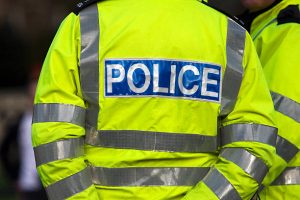
The lowest police rank in the police service is Police Constable or PC. The truth is, all police officers hold the Office of Constable, whatever their rank. The higher the rank, the more managerial responsibility you have, but it doesn’t make higher ranking officers the experts. Very often, PCs have a high level of expertise in specific fields, and they will give training and advise officers of a much higher rank. That could be anything from counter-terrorism, search techniques, roads policing, emergency planning, drone pilots, public order, schools liaison, and so on. Many PCs are happy to stay at their rank and continue with their expertise.
All PCs have very high demands on them every set of shifts, and most have to balance large caseloads and work under extremes of pressure, both physical and psychological. Working in these extremes requires great skill and is often misunderstood by members of the public.
WPC
The term WPC (woman police constable) does not exist in modern policing. You are a PC, not a WPC. Thankfully, authors and screenwriters of contemporary police fiction are getting this now. When children are involved in a case, female police officers are not deployed to babysit them–please no! A female police officer is usually required when searching a person identifying as female. For example, a female suspect taken into custody would usually be searched by a female police officer.
Detective Chief Inspector and Their Sergeant
To avoid confusing us with a plethora of characters, many crime novels and TV shows have a DCI or DI going around investigating with their DS, solving the case and having a pint at the end of the day. In reality, there can be a hundred or more officers and civilian investigators working on a murder inquiry. That’s a lot of sub-plots and actors! For the sake of sanity, most authors and screenwriters will have a team of detectives and allude to more officers in an outer circle. It would be a nightmare trying to think of over 100 different names!
“Good morning, Jones,” said Inspector Bumble
There is nothing in police procedure or other regulations that says police officers have to call each other by their surnames. An inspector, sergeant, PC colleague I work with would call me Matt or Matthew, not Evans. I wouldn’t dream of calling an officer with a higher rank than mine by their first name.
Did you call me Sir?
I’ve seen this in TV crime and novels, where sergeants are called Sir or Ma’am. That is incorrect. You call them sergeant, sarge, or skipper—to their faces, anyway.
Detective sergeants do not outrank uniformed sergeants.
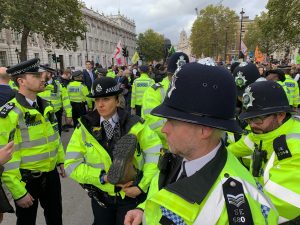
I’ve seen this in a cosy police adventure set in the Caribbean. A DS and PS have different roles and areas of expertise, and you would bow to any colleague’s area of expertise. The same goes for PCs.
You’re nicked, sunshine!
Police officers can’t just declare “you’re nicked”—it could get them into a lot of trouble, especially in court. When arresting someone, you must tell them why you are arresting them, give them the police caution, and tell them the necessity of the arrest. All this has the caveat, “if it is practical to do so”. In other words, if they are swinging an axe at your head, you may just want to give them a dose of pepper spray and handcuff them first.
The necessity of arrest is set out in Section 24 of PACE, Code G. Some examples of the necessity of arrest are the prompt investigation of the offence (e.g. in an interview), to prevent harm or physical injury to themselves or others, and prevent loss or damage to property.
“Charge him, Jones…”
I’ve seen this so many times. The police detective catches their man/woman and says to the sergeant, “charge him”. As dramatic as these scenes are, it doesn’t happen that way and is a misunderstanding of what charging someone is. A person is charged with an offence once all the evidence is gathered and you have no more questions/evidence to put to them. For serious cases, it is the decision of the Crown Prosecution Service (CPS) to charge, not the police. The police present the evidence to a CPS lawyer and wait for their decision. The police’s job is to gather evidence, which includes allowing the suspect to give their account.
Where are the Specials?
Special Constables (SCs, or specials) are volunteer police officers. That’s right, they do what they do for love! Some people confuse SCs with PCSOs, who are important police staff. Some use the SC role to gain policing experience before they apply to join the regulars (paid police officers), and some are career specials.
Specials have exactly the same powers of arrest as their regular colleagues. However, they do not have the same level of training. I’m now a special constable, having once been a regular. I don’t pretend that I have the same expertise as a regular police constable. Most specials are required to do a minimum of 16 hours a month in this voluntary role.
Special Roles
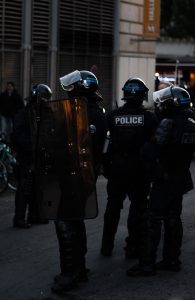
Specials can do a variety of policing roles now, including public order and roads policing. They can claim expenses, usually for travel and food allowance. Some forces allow them to claim for a boot allowance.
The role is very rewarding and much more appreciated by regular officers than it used to be. As Specials only work part-time, they cannot always take on caseloads that require prolonged investigation. Specials come into their own when they support regular officers. They can allow more regulars to go out double-crewed, which is better for their safety and the public’s safety.
Specials are hardly ever mentioned in crime fiction. It would be good to see their role explored more positively, especially with their influence on regular policing. It’s something I would like to explore in the future.
Cakes…
When police officers make mistakes (e.g. denting a police car, losing your work mobile), the punishment is usually cakes. That’s an unwritten police procedure. You’re not usually reprimanded unless you do it regularly or were reckless. Line managers should be in the business of improving an officer’s skills and encouraging them, not bringing them down. Sadly, there is always one that doesn’t get this.
What’s wrong with you?
The most important thing to remember is that all police officers are human beings, made up of members of society. We are them, and they are us, with all our faults and failings, fears and dreams. In my opinion, it’s always important to give your fictional detective a character flaw to help us remember that they are only human, after all.
